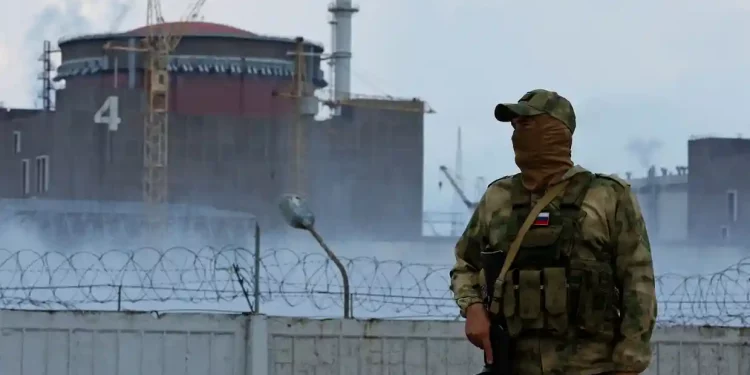The United Nations nuclear watchdog has called for officials to visit Ukraine’s Zaporizhzhia power plant as soon as possible amid renewed shelling in the area and warnings of the “catastrophic consequences” of continued fighting near Europe’s largest atomic plant, theguardian.
“This is a serious hour, a grave hour and the IAEA [International Atomic Energy Agency] must be allowed to conduct its mission to Zaporizhzhia as soon as possible,” the agency’s chief, Rafael Grossi, told an emergency meeting of the UN security council on Thursday night.
Ukraine’s state-run company operating the plant, Energoatom, said the area was struck five times on Thursday, including near the site where radioactive materials are stored.
“Five [hits] were recorded near the plant management’s office – right next to the welding site and the storage facility for radiation sources,” Enerhoatom said in a post on its official Telegram channel. “The grass caught fire over a small area, but fortunately, no one was hurt.”
The claims come just one day after Ukraine accused Russia of firing rockets from around a captured nuclear power plant, killing at least 13 people and wounding 10, in the knowledge that it would be risky for Ukraine to return fire.
The UN’s top official called for an immediate end to all military activity around the Zaporizhzhia plant, warning that further “deeply worrying” incidents could – if they continue – lead to disaster.
“I am calling for all military activities in the immediate vicinity of the plant to cease immediately and not to target its facilities or surroundings,” António Guterres, the secretary general, said in a statement ahead of the meeting.
Guterres warned that any potential damage to the Zaporizhzhia plant “could lead to catastrophic consequences not only for the immediate vicinity, but for the region and beyond”.
Grossi said he was ready to lead an expert mission to inspect the site in south-eastern Ukraine and called on Russia and Ukraine to cooperate so officials could travel as soon as possible.
“Time is of the essence,” he told the 15-member security council via video feed, adding that the agency could perform urgent work on safeguards and provide a stabilising influence in order “to prevent a nuclear accident from happening”.
















